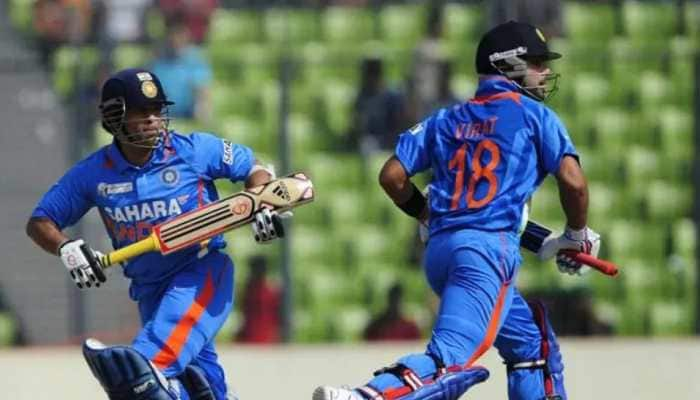More than 1000 dengue cases in Delhi – Here's how you can protect yourself from the deadly sting
Dengue and chikungunya are caused by aedes agypti mosquito, which breeds in clear water. Anopheles mosquito, which causes malaria, can breed in both fresh and muddy water.
Trending Photos
)
New Delhi: The number of dengue-affected people in the capital this season has climbed to 1,185 with over 35 per cent cases of the vector-borne disease recorded last month, according to a municipal report released today.
A 12-year-old boy had succumbed to dengue shock syndrome on August 1 at the Sir Ganga Ram Hospital here, the first death due to the vector-borne disease reported in the city this year.
The number of malaria cases recorded till September 2 has risen to 524, while the figure for chikungunya stands at 392.
Of the 1,185 cases, 604 affected people were residents of Delhi, while the rest were patients from other states. Of the 604 cases of Delhi residents, 418 were reported this month.
Vector-borne diseases are reported between mid-July and November end. Cases of all the three vector-borne diseases were reported much earlier this time, which doctors had attributed to early arrival of the monsoon.
Dengue and chikungunya are caused by aedes agypti mosquito, which breeds in clear water. Anopheles mosquito, which causes malaria, can breed in both fresh and muddy water.
According to the report, breeding of mosquitoes has been reported at 1,38,590 households in Delhi. All the three municipal corporations have stepped up awareness drives – distributing pamphlets and plying vehicles with loudspeakers issuing dos and don'ts for prevention of the diseases.
The city government has banned over-the-counter sale of nonsteroidal anti-inflammatory drugs such as aspirin and brufen as their use may "pose a threat" to dengue and chikungunya patients.
At least 21 deaths due to dengue were reported last year at various hospitals, including nine at AIIMS, though the official tally of the civic bodies stood at 10. 17 deaths suspected to be due to malaria were also reported by the civic bodies.
At least 15 fatalities were reported last year at various hospitals in the city due to complications triggered by chikungunya, though the civic bodies have kept the death tally at zero.
In one of the worst outbreaks, a total of 12,221 chikungunya cases were reported in Delhi till December 24, 2016, out of which 9,749 were confirmed.
How to prevent mosquito bites:
Here are a few tips and tricks you can follow to avoid getting bitten:
- Use mosquito repellents regularly – apply it to your skin, especially to all exposed areas, and clothing. For your skin, opt for a repellent that contains at least a 10 percent concentration of DEET.
- Use camphor as a repellent – you can light camphor in the room with all the doors and windows closed. Leave it for about 15-20 minutes to keep the mosquitoes away. You can also use the lemon and clove technique - just stick some cloves in a half-sliced lemon and keep it near your bed while you sleep.
- Always use a mosquito bed net while sleeping.
- Wear long-sleeved shirts, pants and socks.
- Wear covered shoes when outside.
- Avoid exercising outdoors as mosquitoes get attracted to sweat.
- Empty and clean all containers that hold water such as flower pots, flower vases, and animal dishes – at least once a weak – to prevent mosquitoes from breeding at your house.
- Keep your surroundings clean, ensuring that there is no stagnant water, which is a breeding ground for the mosquitoes.
- Try to stay in air-conditioned or well-screened housing.
(With PTI inputs)
Stay informed on all the latest news, real-time breaking news updates, and follow all the important headlines in india news and world News on Zee News.
Live Tv







)
)
)
)
)
)
)
)
)
)
